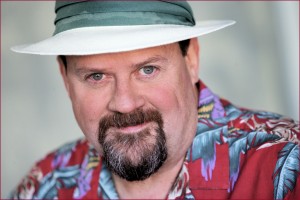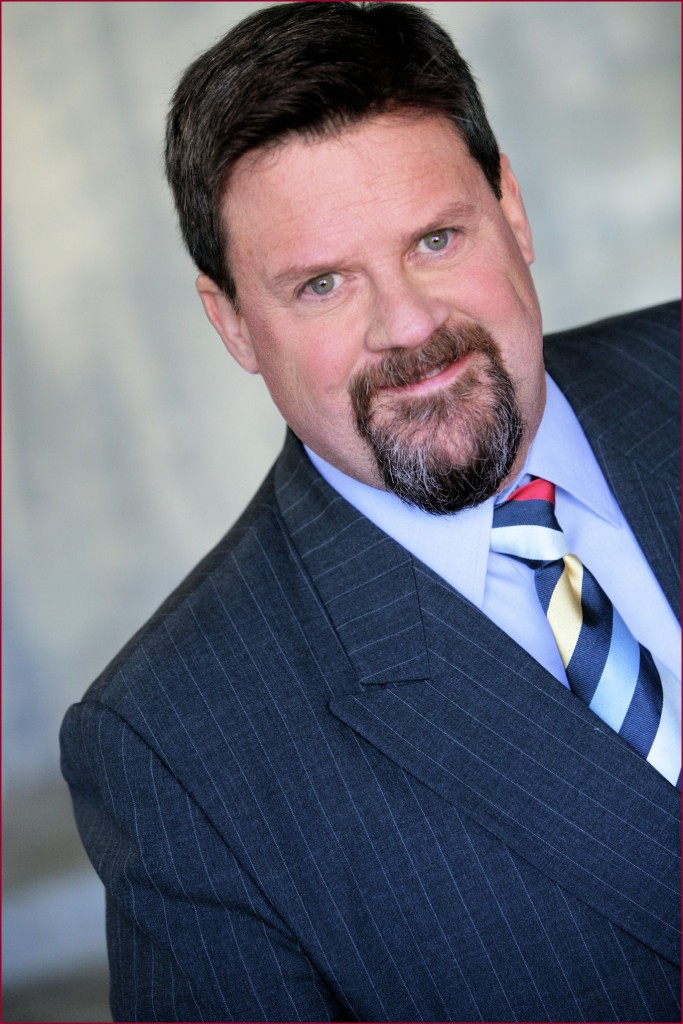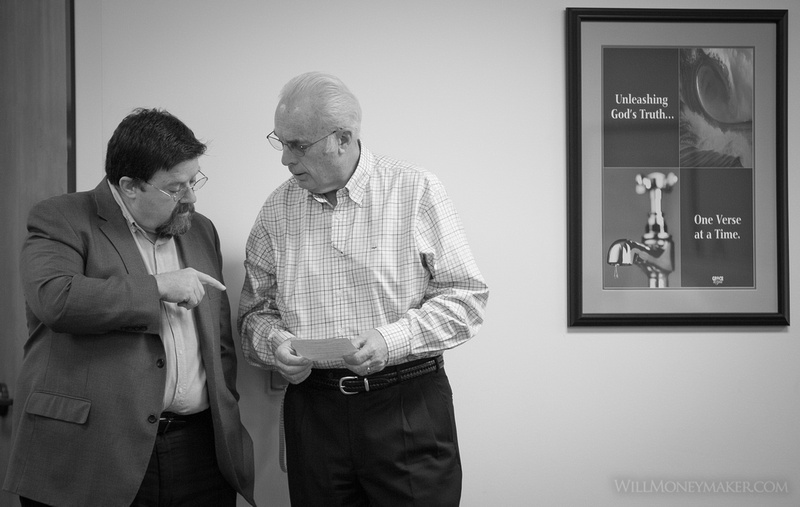By Pastor Rob Ventura
Phil Johnson is the executive director of Grace to You, heard locally on WARV 1590 AM or streamed online at gty.org. He has been closely associated with John MacArthur since 1981 and edits most of John’s major books. Phil also maintains several popular websites, including The Spurgeon Archive, The Hall of Church History, and the Pyromaniacs blog and is also an ordained elder and pastor at Grace Community Church in Sun Valley, CA. Phil will be speaking at the Southern New England Reformation Conference in North Providence, R.I. on May 5th & 6th 2017, on the topic of Answering the Skepticism of an Unbelieving Generation.
Phil, please tell us a little about yourself. How long have you been saved? How long have you been married? Do you have children, grandchildren? What do you enjoy doing outside of ministry?
My family were Methodists for several generations before me, so I spent my formative years going to Sunday school every week in a theologically and politically liberal church where if we ever heard anything about doctrine, it had a left-leaning Wesleyan Arminian slant. I don’t remember ever hearing the gospel declared plainly. We did sing some of the classic hymns of Christianity, and there were responsive readings whose words were drawn from Scripture, but those things made very little conscious impact on me.
When I was in junior high school or thereabout, just old enough to form discriminating thoughts of my own about what we were being taught, I realized that the Sunday school teachers were constantly telling us that we shouldn’t take the Bible literally; Jesus didn’t really say what Scripture attributes to him; and this or that miracle didn’t really happen. And it occurred to me that no one in that church really believed the Bible is true, so I was mystified about why they would want to spend an hour or two every Sunday talking about it. I finally raised that question in class, and the pastor of the church summoned me to his office to straighten me out. He told me if I didn’t change my way of thinking, I might grow up to be a fundamentalist.
So in high school, once I was permitted to make my own decision about whether to attend church or not, I quit going and took up watching the NFL pregame show on TV instead.
A few years later, in my final year of high school (barely a month before graduation), a friend of mine became a Christian. He changed overnight from being the class comedian to being the school conscience. Watching the change in his life and character, I began to realize how devoid my own life was of anything holy. I still believed in God, but you’d hardly know it from my pastimes or my reading list. My time and energies were almost totally devoted to politics. I believed good and evil were divided along party lines, and my goal was to gain political power and use it to change the world for good. I believed that by striving to be a knowledgeable, wise, and noble person, I could earn the favor of God.
But one night the weight of my own guilt prompted me to pick up my Bible and read it. I opened it randomly, intending to read no more than a few (hopefully serendipitous) verses. My Bible fell open to the first page of 1 Corinthians. So I thought it might be a good exercise to read the whole epistle. I had never read that much of the Bible at once.
The first three chapters of 1 Corinthians are an all-out assault on human wisdom, and by the time I finished those three chapters, I knew I was totally lost, and I cried out to the Lord for help. I kept reading, and while I didn’t understand everything I read, by the time I got to 1 Corinthians 12:3, I understood that I needed to confess Jesus as Lord—and instinctively understood that meant yielding to Him as my Lord. I understood that I needed to become a disciple of Jesus with the same kind of total commitment I had devoted to politics.
Over the following week, a series of remarkable events kept confronting me with gospel truth. The very next day, I was handed a tract that explained the doctrine of justification. The day after that, a friend invited me to an evangelistic meeting where the preacher preached on the crucifixion from Isaiah 53. When I heard that sermon, I realized for the first time that the Old Testament was pointing to Christ—and from that night until now, I have never had any doubt about the truth of God’s Word. At some point during the course of that week, the Lord opened my heart to believe. That was April of 1971.
A few weeks later, I found a church in my neighborhood where the Bible was taught and the gospel believed. The pastor of that church heard my testimony and baptized me. In the course of giving him my testimony, I mentioned that I needed to learn the Bible, and that I wanted to serve the Lord in some way with my life. He recommended that I attend Moody Bible Institute, so I filled out an application and was accepted.
In my final semester at Moody, I took a part-time job proofreading for Moody Press. I loved the work and decided after graduation to stay on and become a book editor. I met my wife, Darlene, exactly 40 years ago, in 1977, when she came to work at Moody Press. We got married a year later and started our family a year after that. We have three sons, all adults now. All of them are believers and still attend Grace Church. (One is a writer for Grace to You online; one is a tax accountant; and one is a police officer with the LAPD.) They are all three married and have given us seven grandchildren. The Lord has greatly blessed us.
 How long have you been working at Grace to You and what particularly attracted you to Dr. John MacArthur’s ministry?
How long have you been working at Grace to You and what particularly attracted you to Dr. John MacArthur’s ministry?
This is my 35th year at Grace to You. I first heard John MacArthur speak in 1977, shortly after I met Darlene. He came to Moody to speak at a student chapel, and I was in awe of the clarity and biblical content of his preaching. I’d never heard of him before. He had not yet published any major books. And my first thought as a book editor was He needs a literary assistant to help him get his material organized and edited for publication.
The “Grace to You” radio broadcast debuted in 1978, and I began to listen to John every day. Every time I heard him, I lamented that he wasn’t publishing books. I found his expositions of 1 John especially instructive, because I was wrestling with some things Charles Ryrie had written that didn’t sound quite right to me—namely, a chapter titled “Must Christ be Lord to be Savior?” in Ryrie’s Moody Press book Balancing the Christian Life. John brought far more clarity and biblical weight to that question than Ryrie did, I thought.
Then in 1981 I met John for the first time. He visited the Moody Press offices for an initial discussion about The MacArthur New Testament Commentary series. It was the largest academic-book project Moody had ever initiated, and the meeting was to discuss editorial strategy. A dozen people were involved in that discussion, mostly book editors. I didn’t say much if anything at all during the meeting, but when it was over, I had a moment to talk one-on-one to John. I explained that I was a regular listener, and I suggested he should consider writing a book on the lordship issue. He brightened immediately and said, “I intend to do that. I even have a title in mind: The Gospel According to Jesus.”
That was the start of our relationship. Over the course of the next year, I more or less became the main contact between John and Moody Press. I was intrigued by some material he had preached on worship from John 4:23: “The hour is coming, and is now here, when the true worshipers will worship the Father in spirit and truth, for the Father is seeking such people to worship him.” I took verbatim transcripts of his sermons on worship and edited them for a book titled The Ultimate Priority.
When my work on The Ultimate Priority was finished, John came to Chicago for some meetings. For some reason, he came via train, and I volunteered to meet him at Union Station and drive him to his hotel near the airport. When we were about halfway to O’Hare and in the middle of a conversation about Robert Schuller and his Self-Esteem doctrine, John suddenly changed the subject. Out of the blue, he said, “You should quit your job at Moody Press and come to work at Grace to You. You could help me with my writing projects.”
I said, “OK.” He said, “No, I’m serious.” I said, “So am I.” And within a few weeks, I had moved to Los Angeles, and I have been working at Grace to You ever since.
Could you please tell us what you do for Grace to You and what is your favorite part of the work there?
I’m the executive director. There are more than 50 paid employees who work under me, so I have the luxury of being able to delegate virtually all the hands-on duties. We have a team of very competent people, and my main duty is to keep them on task, establish and maintain our policies and procedures, and make sure everything we do is done with excellence in a way that honors the Lord.
The most important part of my job is still the work I do as a book editor—translating John MacArthur’s material from sermonic form to book form. My favorite part is when a major book project is finished. A famous author once said, “I hate writing, but I love having written.” I’d say the same thing about editing.
What are some of your favorite books by John MacArthur and why?
- The Gospel According to Jesus. People tell me all the time that their lives were changed completely when they read that book. It shatters the false assurance of people who are trusting in something they have done—walking an aisle, praying a prayer, or whatever. It gives a solid, biblical answer to the question of what Jesus meant when He said, “Follow Me.”
- The Vanishing Conscience—editing this book reshaped my understanding of sanctification.
- Ashamed of the Gospel—this is the book that first sparked my interest in Spurgeon and helped me understand that all the fads and ministry philosophies that today’s evangelicals hail as “new” and “revolutionary” are really just recycled mistakes from the past.
- The Jesus You Can’t Ignore—this is a vastly underrated book, in my opinion. It refutes postmodern efforts to reinvent Jesus as a politically-correct, quietly reserved self-help guru.
Who are some of your all-time favorite preachers and authors besides Dr. MacArthur?
Martyn Lloyd-Jones, Spurgeon, Andrew Fuller, Thomas Boston, Jonathan Edwards, R. L. Dabney.
What are some of the dangers that you see in the church today, both in Reformed and non-Reformed circles?
Number one on my list would be a fleshly craving for social and academic esteem, political clout, and the world’s admiration that permeates the evangelical culture. Elite evangelical leaders in particular seem to have a pathological fear of being critical of popular trends and majority opinions, and as a result, the conservative evangelical movement today is neither conservative nor evangelical in the true and historic sense of that term.
I actually have a much longer list of concerns than that, but I blogged about all those issues for nearly a decade, and all that material is still online and searchable via Google, so in the interests of not sounding totally negative, I’ll refer anyone who is interested in hearing more to my now-nearly-defunct blog at teampyro.blogspot.com.
 Phil, on the weekend of May 5th & 6th 2017, you will be speaking at the Southern New England Reformation Conference in North Providence, R.I., on the topic of Answering the Skepticism of an Unbelieving Generation. Please tell us why you think this topic is particularly relevant and how you plan to address it.
Phil, on the weekend of May 5th & 6th 2017, you will be speaking at the Southern New England Reformation Conference in North Providence, R.I., on the topic of Answering the Skepticism of an Unbelieving Generation. Please tell us why you think this topic is particularly relevant and how you plan to address it.
The Internet has given rise to a hostile, aggressively outspoken brand of militant atheism that seems to be growing and assimilating students from Christian backgrounds who grew up in youth groups that existed to entertain them rather than instruct them. Christian apologists need to be more diligent than ever to answer the barrage of skepticism that is being blasted to the world via Twitter, Facebook, YouTube, and every other popular social medium. The Bible does answer skeptics, and Christians need to have those answers.
For more information about the upcoming Southern New England Reformation Conference please go to www.gcbcri.org or call 401-826-3121.









